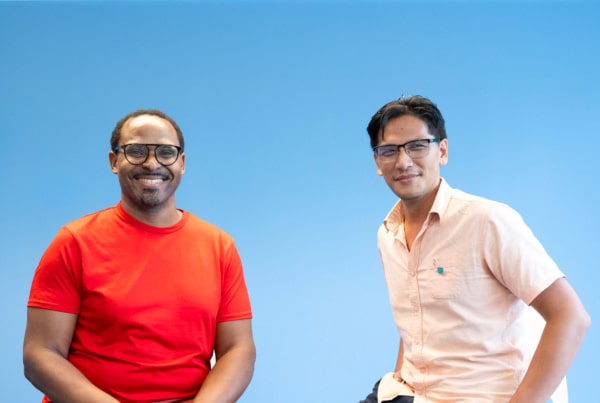
Alix spent a semester at university in Cadiz, Spain, as part of the Erasmus+ programme. He tells us about his experience...
About you :
My name is Alix LESPERANCE and I'm 22. I'm in my third year of a degree in Economic and Social Administration (AES). I'm currently in Spain at the University of Cadiz for a semester as part of the ERASMUS+ programme.
What prompted you to go on an international mobility scheme?
As a curious and open-minded person, I'm always eager to try something new. I love discovering new cultures and having new experiences.... That's why I decided to sign up for the ERASMUS+ programme and study in Spain for a semester.
I found out about this programme shortly before COVID through a friend who was due to join. Unfortunately, her trip was cancelled because of the epidemic. When departures became possible again, I seized the opportunity and applied to the International Relations Office (BRI) at the University of Guyana. I really like the idea of learning in another language and discovering a new culture. It's something I've been interested in since high school.
As well as learning a new language and a new culture, this experience also enabled me to discover life outside the family cocoon and to become more independent.
How do your lessons go? Do you manage to deal with cultural and linguistic differences?
I was apprehensive at first. I was afraid I wouldn't understand the lessons because of the language barrier. But in reality, the teachers are very friendly and don't hesitate to repeat or rephrase if you don't understand the language or the content of the lessons.
The lessons are similar to those I took in French Guyana, so I can easily make the connection with my previous knowledge. I'm able to integrate new concepts and if I ever have any difficulties, I can count on my classmates for help.
Tell us about your host university.
The university I'm studying at is in Cadiz. It's a charming, historic port city. It focuses on socio-humanistic studies and offers a programme within its Economics faculty similar to that of my course at the University of Guyana.
What I particularly like about this university is its warm welcome for foreign students and its approach to teaching. The lecturers are available and kind to the students.
What is student life like in your host country? Have you met any new people?
I've had the opportunity to meet some wonderful people. People are open and welcoming. I'm sociable by nature, which was a plus when it came to adapting and reaching out to others during my stay. Foreign students and locals often get together to share good times. For example, we've organised a few sports tournaments, like football, and we're having fun showcasing our countries of origin in the form of a mini world cup!
I'm lucky to be in an area where student life is lively and dynamic. There's a wide variety of activities, such as sport, music and going out with friends, which allows you to have as much fun as possible and not just concentrate on your exams.
Did you do two semesters in Spain?
Yes, after my first Erasmus stay in 2022, I decided to repeat the experience to learn more about Spain. I was really taken by the culture and diversity of this country, as well as the warm welcome of the Spanish people. There are so many different communities here.
I make the most of it because, as a student, it's a real opportunity to travel and to do things that we're passionate about outside the home country. For example, I really enjoy music and travelling. Thanks to the programme, I've been able to discover other musical styles and travel to towns and regions outside Cadiz.
Unfortunately, not everyone has the opportunity to go away twice because of the limited resources allocated to exchange programmes. However, I tried my luck and applied again to go back to Spain! I'm currently on my second exchange to Spain and I'll be returning to French Guiana at the end of the semester.
How did you prepare for your departure?
During my first stay, the most difficult part was finding accommodation. I spent a lot of time looking at accommodation advertisements. Each region or country has its own particularities: in some countries, it's easier to find international shared accommodation, while in others it's more likely to be a room in a private home. Personally, I opted for a student flat-share. To be honest, there are both advantages and disadvantages. However, each experience is unique and different. In any case, sharing a flat is often the quickest and cheapest way to find accommodation when you're on a university exchange.
I was able to go thanks to a grant offered by the exchange programme, but also because I'm a student on a scholarship. So I was able to keep my CROUS grant. There are also other forms of assistance that can be combined to give you peace of mind when you go away, just contact BRI for more information. Thanks to these grants, I was able to find accommodation and live independently throughout my stay.
Do you have any advice for students who are hesitating about international mobility?
A university exchange is an opportunity not to be missed. If I have one piece of advice to give, it's this: if you have the chance to go on a university exchange, go for it! You're in for a very enriching experience on every level: personal, professional, social...




